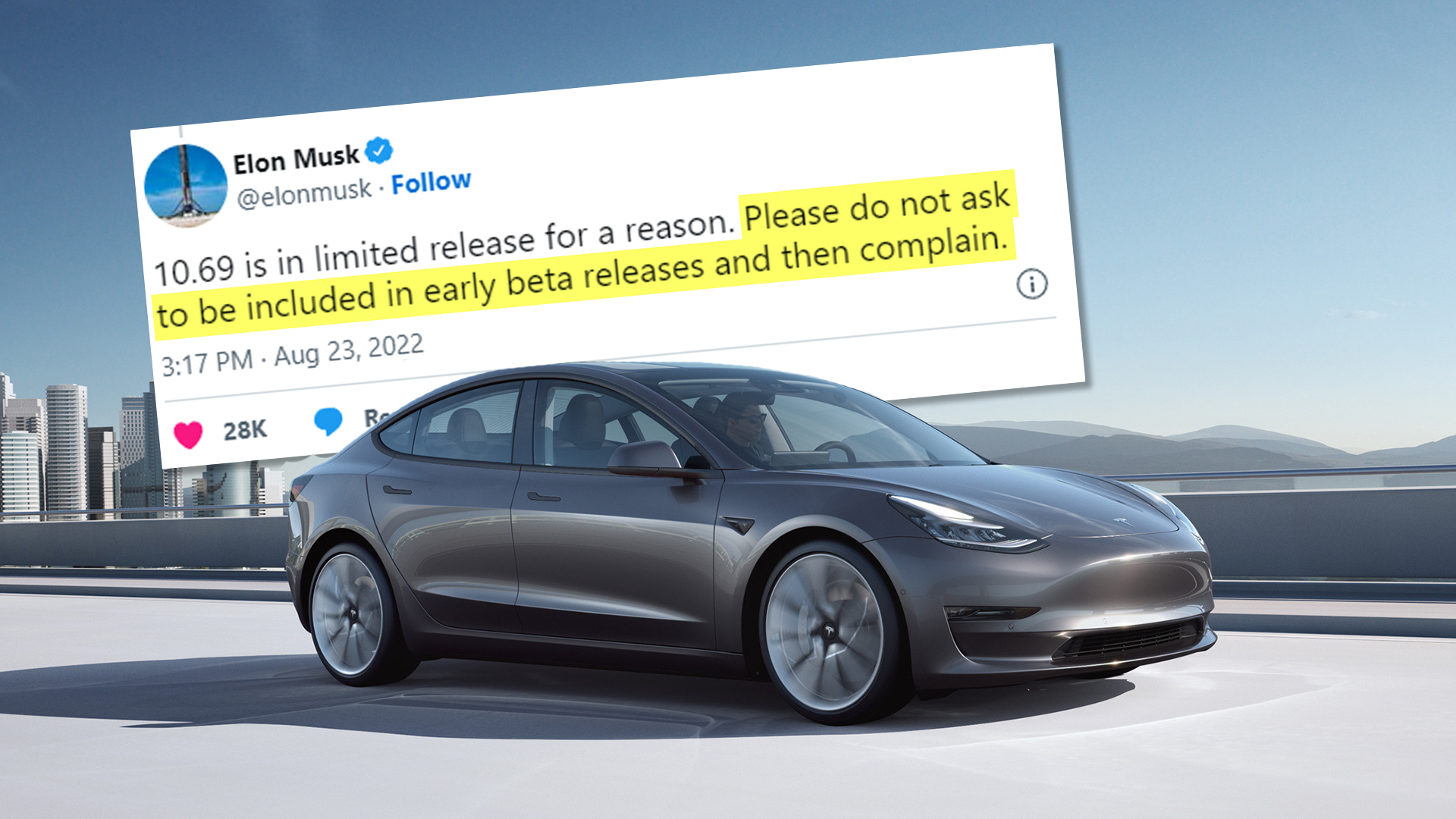

Elon Musk doesn’t want to hear your complaints about the performance of Tesla’s Full Self-Driving Beta software.
Just three days after Tesla started rolling out the latest version of its FSD Beta software, owners included in the limited release began posting their experiences with the software. While some experiences were positive, other testers ran into problems. James Locke was one of those testers who felt that FSD Beta version 10.69 wasn’t all that it was hyped up to be, and he voiced his opinion on Twitter. Musk was watching, though, and his response to Locke’s criticism indicates that it wasn’t welcome.
Locke’s criticism came after he posted several videos on Twitter and YouTube outlining the performance of the newest build. His assessment was that Tesla still had “lots of work to go” and recommended that the automaker focus on solving some basic control issues rather than something Musk is hell-bent on fixing: the “Chuck complex,” or Chuck’s Unprotect Left Turn.
Musk’s reply to Locke indicated that its newest branch of code was in “limited release for a reason,” adding that he shouldn’t “ask to be included in early beta releases and then complain.”
Moments before announcing that the price of FSD would jump by 25 percent to $15,000, Musk hyped up the 10.69 build of FSD Beta, claiming that it “will be big” and is “a big step forward.” He has also publicly expressed appreciation for critical feedback and noted the importance of negative feedback in general. Apparently, that doesn’t apply to FSD Beta, or Musk simply viewed it as complaining.
But for Locke, his feedback is something that he and his followers value. He has spent years posting clips of Tesla’s Autopilot and FSD Beta software handling specific conditions on YouTube. In fact, Locke noted in a separate tweet that he has paid for FSD five times over, sinking more than $32,000 into the software as an early adopter.
Tesla previously required FSD Beta participants to sign a non-disclosure agreement that prevented sharing information that portrayed the feature negatively. The NHTSA had issues with this and the policy was eventually rescinded, but that doesn’t mean Tesla actually welcomes bad feedback. The automaker even fired an employee who posted FSD Beta videos, including one showing it colliding with a pylon while off-the-clock earlier this year. This same pseudo-censorship has worried some about Musk’s $43 billion offer to buy Twitter, especially given the platform’s importance to Tesla’s audience.
Regardless of Tesla’s position on this, feedback is crucial in any organization’s development and safety lifecycles. One would think that this kind of information from the tester of a beta software version rolled out in a very narrow scope of users is particularly valued, especially when it comes to testing a feature on public roads in a two-ton sedan with other non-beta participants driving alongside them. Understanding where these systems fail or underperform is essential in improving it, and Musk’s public shaming of one of the company’s testers could discourage others from reporting issues as well.
Got a tip or question for the author? Contact them directly: rob@thedrive.com